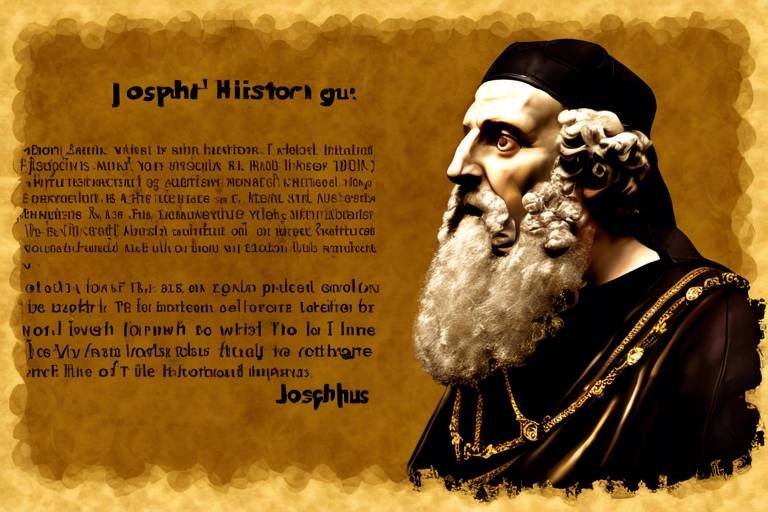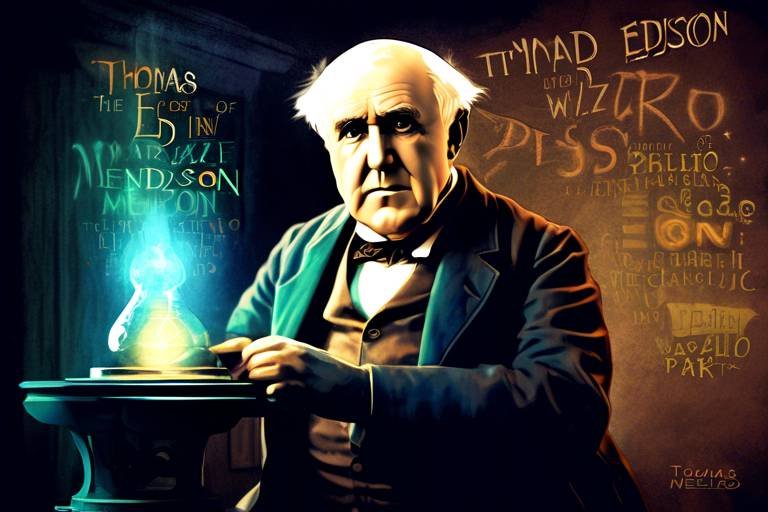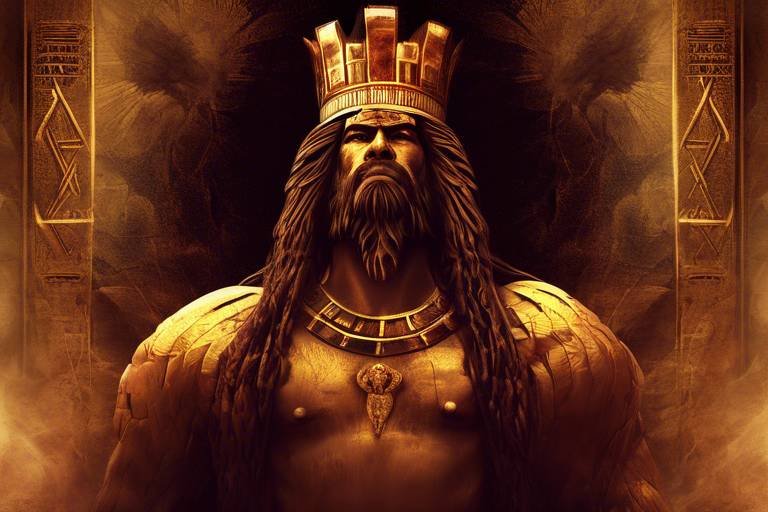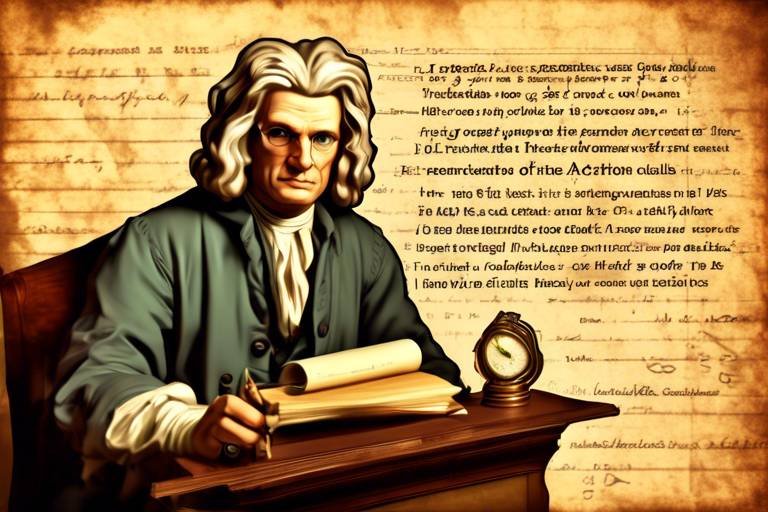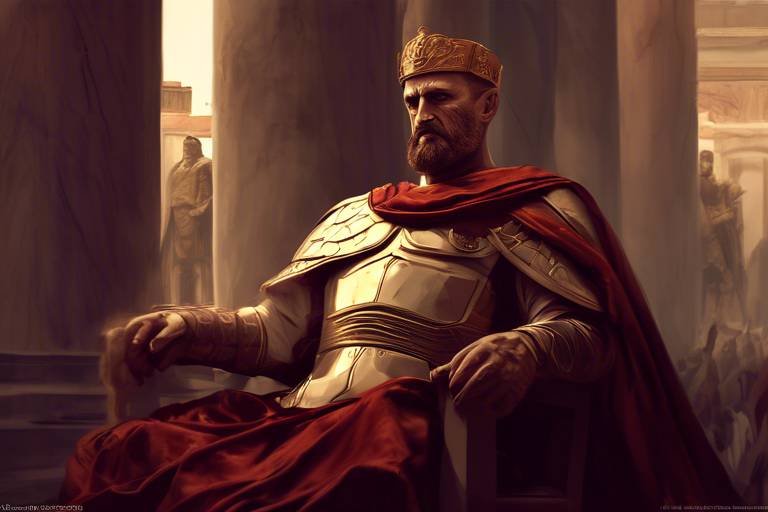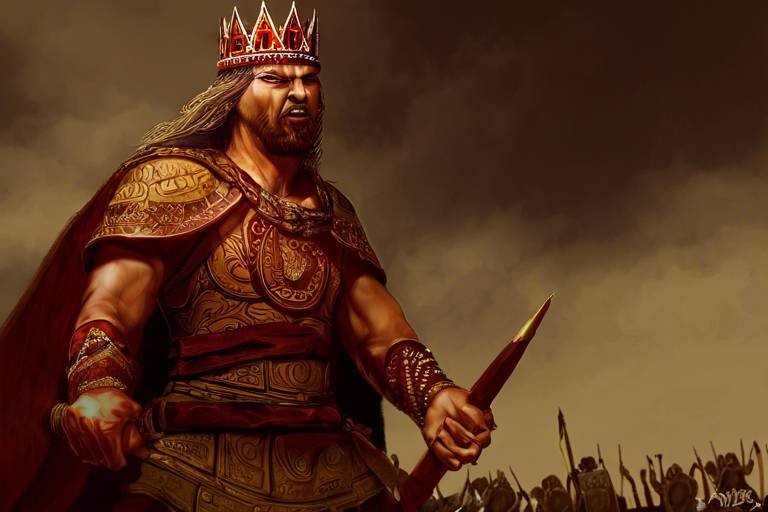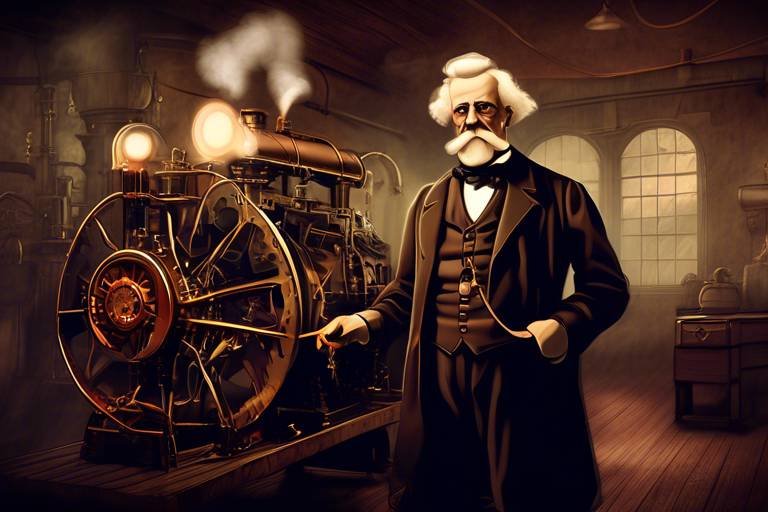Josephus: The Jewish Historian
Josephus, a remarkable first-century Jewish historian, stands as a pivotal figure whose writings offer profound insights into the rich history and culture of the Jewish people amidst the backdrop of the Roman era. His works serve as invaluable treasures for those seeking to comprehend significant events like the Jewish-Roman War and the tragic demise of the Second Temple.

Life and Background of Josephus
Josephus was a first-century Jewish historian whose works provide valuable insights into the history and culture of the Jewish people during the Roman period. His writings are crucial for understanding events such as the Jewish-Roman War and the destruction of the Second Temple.
Josephus, born Yosef ben Matityahu, was a Jewish historian and military leader who lived during the first century AD. He was born in Jerusalem to a priestly and aristocratic family, which provided him with a privileged upbringing and education. Josephus later became involved in the Jewish-Roman War, where he initially fought against the Roman forces but eventually surrendered and became a Roman citizen.
His experiences during the war and his subsequent writings offer a unique perspective on the tumultuous events of that period. Josephus's works reflect the cultural and historical context in which he lived, blending Jewish traditions with Greco-Roman influences.
Josephus is best known for his two major works, The Jewish War and Antiquities of the Jews. The former chronicles the Jewish-Roman War, while the latter provides a comprehensive history of the Jewish people from creation to the outbreak of the war. These works not only document significant historical events but also serve as a bridge between Jewish and Roman cultures.
Josephus played a crucial role in explaining Jewish customs and beliefs to a wider audience, particularly to his Roman readers. He sought to portray Judaism in a favorable light and highlight its moral and ethical principles. Through his writings, Josephus aimed to foster understanding and respect between the Jewish and Greco-Roman worlds.
Throughout history, Josephus's works have faced criticism for potential bias and manipulation of facts. Some scholars have questioned the accuracy of his accounts and accused him of altering historical events to suit his narrative or please his Roman patrons. Despite these controversies, Josephus's writings remain essential sources for understanding ancient Jewish history.
Josephus's writings have left a lasting impact on the fields of history, religion, and literature. His detailed accounts of Jewish history and culture continue to shape scholarly discussions and interpretations of ancient Judea and the Jewish diaspora. By preserving the rich tapestry of Jewish traditions, Josephus has ensured that future generations can learn from the past.
Early Christian theologians and scholars have drawn upon Josephus's works to gain insights into the historical context of the Bible and the life of Jesus. His writings have provided valuable background information on Jewish figures and events mentioned in the New Testament, influencing Christian interpretations of scripture and shaping theological discussions.
Josephus's depictions of key Jewish figures such as King Herod, John the Baptist, and James the Just have had a significant impact on historical perceptions of these individuals. His detailed accounts of their lives and actions have shaped our understanding of their roles in shaping Jewish history and culture during the Roman period.
Contemporary scholars continue to engage with Josephus's works, reevaluating his writings in light of new archaeological discoveries and research findings. Debates persist regarding the authenticity and reliability of his accounts, prompting ongoing discussions about the historical accuracy of his narratives and their implications for our understanding of the ancient world.
Stay tuned for answers to common queries about Josephus's life, works, and legacy in our upcoming FAQ section!

Works of Josephus
Josephus, the renowned first-century Jewish historian, left behind a rich legacy of works that continue to be studied and revered to this day. Among his most notable works are The Jewish War and Antiquities of the Jews, which offer invaluable insights into the history and traditions of the Jewish people during the Roman period. Through his meticulous documentation of events and customs, Josephus played a crucial role in preserving the cultural heritage of his people for future generations.
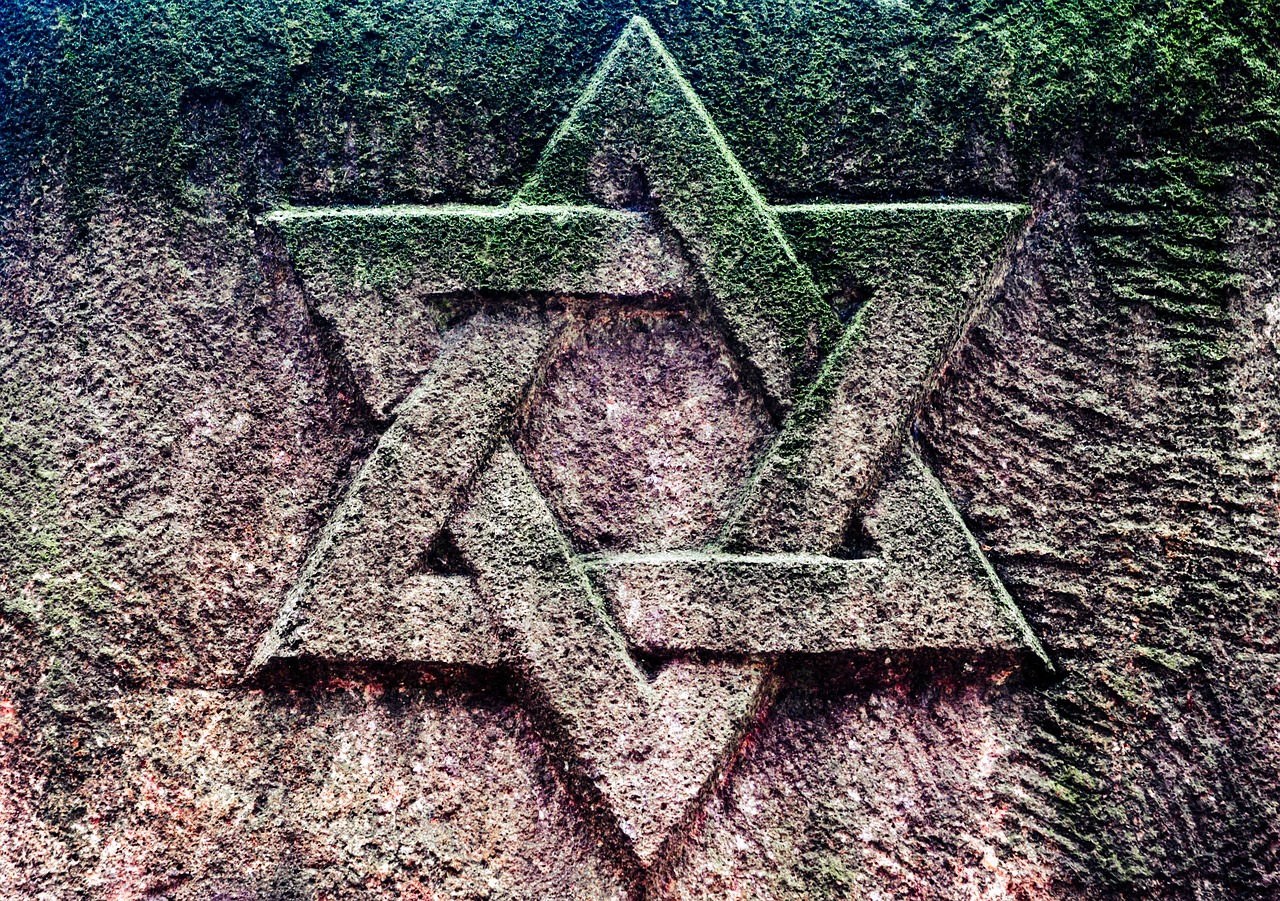
The Jewish War
Josephus was a first-century Jewish historian whose works provide valuable insights into the history and culture of the Jewish people during the Roman period. His writings are crucial for understanding events such as the Jewish-Roman War and the destruction of the Second Temple.
Explore the life of Josephus, including his early upbringing, education, and his role as a military leader during the Jewish-Roman War. Learn about the cultural and historical context in which Josephus lived and wrote.
Delve into the various works authored by Josephus, such as and Antiquities of the Jews. Understand the significance of these writings in preserving Jewish history and traditions for future generations.
Examine Josephus's perspective on Judaism and his efforts to explain Jewish customs and beliefs to a wider audience. Discover how his writings helped bridge the gap between Jewish and Greco-Roman cultures.
Investigate the controversies and criticisms that have been directed at Josephus's works over the centuries. Analyze the accusations of bias and manipulation of historical facts that have been leveled against him.
Learn about the enduring impact of Josephus's writings on the fields of history, religion, and literature. Explore how his works have shaped our understanding of ancient Judea and the Jewish diaspora.
Discover the influence of Josephus's writings on early Christian theologians and scholars. Explore how his accounts of Jewish history and the life of Jesus have shaped Christian perspectives on the Bible and the ancient world.
Examine Josephus's depictions of key Jewish figures such as King Herod, John the Baptist, and James the Just. Evaluate how his portrayals have influenced historical perceptions of these individuals.
Explore how contemporary scholars and historians view Josephus's works in light of new archaeological discoveries and research. Consider the ongoing debates and discussions surrounding the authenticity and reliability of his writings.
The Jewish War, one of Josephus's most renowned works, provides a detailed account of the Jewish-Roman conflict that culminated in the destruction of Jerusalem and the Second Temple. In this monumental work, Josephus chronicles the events leading up to the war, the strategies employed by both sides, and the tragic consequences of the conflict. Through vivid storytelling and historical analysis, Josephus offers readers a gripping narrative of a pivotal moment in Jewish history.

and
Josephus's works, The Jewish War and Antiquities of the Jews, are considered monumental in preserving the history and traditions of the Jewish people. Through his detailed accounts of events like the Jewish-Roman War and the destruction of the Second Temple, Josephus provides a vivid picture of the challenges faced by the Jewish community during the Roman period. His writings serve as a bridge connecting the past to the present, offering valuable insights into the cultural and religious practices of ancient Judea.

Antiquities of the Jews.
Josephus's work Antiquities of the Jews is a monumental historical account that traces the history of the Jewish people from creation to the outbreak of the Jewish-Roman War. In this extensive work, Josephus meticulously documents the origins of the Jewish nation, the lives of key figures such as Abraham, Moses, and David, and the various events that shaped Jewish history.
One of the notable aspects of Antiquities of the Jews is Josephus's skill in blending biblical narratives with historical accounts, providing a comprehensive and detailed record of the Jewish people's journey through time. Through his writings, Josephus seeks to not only preserve the rich heritage of the Jewish nation but also to present it in a format accessible to a wider audience, including his Roman readers.
Within Antiquities of the Jews, Josephus offers valuable insights into the customs, traditions, and religious practices of the Jewish people, shedding light on their beliefs and way of life. By incorporating both biblical sources and his own historical research, Josephus creates a narrative that serves as a crucial link between the ancient world and modern understanding of Jewish culture.
Furthermore, Antiquities of the Jews serves as a key resource for scholars and historians studying the ancient Near East, providing a detailed account of the political, social, and religious dynamics that influenced the development of the Jewish nation. Josephus's work continues to be a cornerstone in the study of Jewish history and remains a significant source of information for researchers exploring the roots of Judaism.

Understand the significance of these writings in preserving Jewish history and traditions for future generations.
Josephus was a first-century Jewish historian whose works provide valuable insights into the history and culture of the Jewish people during the Roman period. His writings are crucial for understanding events such as the Jewish-Roman War and the destruction of the Second Temple.
Explore the life of Josephus, including his early upbringing, education, and his role as a military leader during the Jewish-Roman War. Learn about the cultural and historical context in which Josephus lived and wrote.
Delve into the various works authored by Josephus, such as The Jewish War and Antiquities of the Jews. Understand the significance of these writings in preserving Jewish history and traditions for future generations.
Examine Josephus's perspective on Judaism and his efforts to explain Jewish customs and beliefs to a wider audience. Discover how his writings helped bridge the gap between Jewish and Greco-Roman cultures.
Investigate the controversies and criticisms that have been directed at Josephus's works over the centuries. Analyze the accusations of bias and manipulation of historical facts that have been leveled against him.
Learn about the enduring impact of Josephus's writings on the fields of history, religion, and literature. Explore how his works have shaped our understanding of ancient Judea and the Jewish diaspora.
Discover the influence of Josephus's writings on early Christian theologians and scholars. Explore how his accounts of Jewish history and the life of Jesus have shaped Christian perspectives on the Bible and the ancient world.
Examine Josephus's depictions of key Jewish figures such as King Herod, John the Baptist, and James the Just. Evaluate how his portrayals have influenced historical perceptions of these individuals.
Explore how contemporary scholars and historians view Josephus's works in light of new archaeological discoveries and research. Consider the ongoing debates and discussions surrounding the authenticity and reliability of his writings.
The works of Josephus play a vital role in safeguarding the rich tapestry of Jewish history and traditions for generations to come. Through his meticulous documentation of events and customs, Josephus has provided a lasting legacy that allows future generations to connect with their heritage and understand the trials and triumphs of the Jewish people. By preserving these accounts, Josephus ensures that the cultural identity and historical significance of the Jewish community are upheld and passed down through the ages.
Q: Are Josephus's writings considered historically accurate?
A: While Josephus's works are highly valuable for understanding the historical context of his time, there have been debates among scholars regarding the accuracy and potential biases in his accounts.
Q: How did Josephus's background influence his writings?
A: Josephus's unique position as a Jewish historian living in Roman-occupied Judea influenced his perspectives and the way he presented historical events and figures in his works.
Q: What is the legacy of Josephus in modern academia?
A: Josephus's writings continue to be studied and analyzed by scholars across various disciplines, contributing to our understanding of ancient history, religion, and cultural interactions.
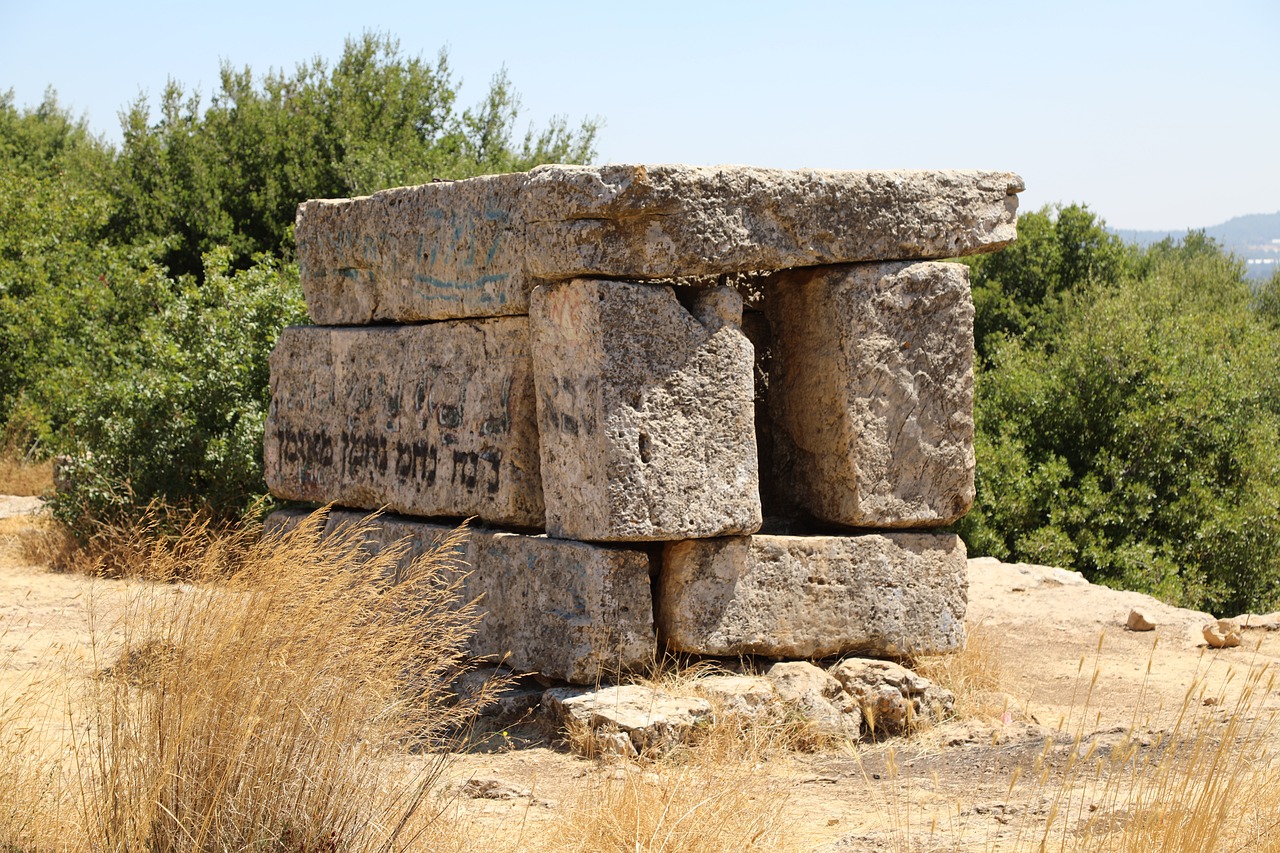
Josephus's View on Judaism
Josephus was a first-century Jewish historian whose works provide valuable insights into the history and culture of the Jewish people during the Roman period. His writings are crucial for understanding events such as the Jewish-Roman War and the destruction of the Second Temple.
Explore the life of Josephus, including his early upbringing, education, and his role as a military leader during the Jewish-Roman War. Learn about the cultural and historical context in which Josephus lived and wrote.
Delve into the various works authored by Josephus, such as The Jewish War and Antiquities of the Jews. Understand the significance of these writings in preserving Jewish history and traditions for future generations.
Josephus had a unique perspective on Judaism, aiming to explain Jewish customs and beliefs to a broader audience. Through his writings, he sought to bridge the gap between Jewish traditions and Greco-Roman cultures, shedding light on the intricacies of Jewish life and faith.
Investigate the controversies and criticisms that have been directed at Josephus's works over the centuries. Analyze the accusations of bias and manipulation of historical facts that have been leveled against him.
Learn about the enduring impact of Josephus's writings on the fields of history, religion, and literature. Explore how his works have shaped our understanding of ancient Judea and the Jewish diaspora.
Discover the influence of Josephus's writings on early Christian theologians and scholars. Explore how his accounts of Jewish history and the life of Jesus have shaped Christian perspectives on the Bible and the ancient world.
Examine Josephus's depictions of key Jewish figures such as King Herod, John the Baptist, and James the Just. Evaluate how his portrayals have influenced historical perceptions of these individuals.
Explore how contemporary scholars and historians view Josephus's works in light of new archaeological discoveries and research. Consider the ongoing debates and discussions surrounding the authenticity and reliability of his writings.
Stay tuned for the FAQ section coming soon!

Controversies Surrounding Josephus
Josephus, the renowned first-century Jewish historian, is not without his share of controversies and criticisms. Throughout the centuries, scholars and historians have scrutinized Josephus's works, raising questions about the accuracy and objectivity of his accounts. One of the primary controversies surrounding Josephus pertains to accusations of bias in his writings. Some critics argue that Josephus manipulated historical facts to align with his own agenda or to please his Roman patrons.
Moreover, another contentious issue revolves around the authenticity of certain passages in Josephus's works. Scholars have debated whether some sections were later additions or interpolations, casting doubt on the reliability of the texts. This debate has fueled ongoing discussions within academic circles about the extent to which Josephus's writings can be trusted as accurate historical sources.
Furthermore, Josephus's close association with the Roman authorities has also sparked controversy. Some have questioned his motives and loyalty, suggesting that his allegiance to Rome may have influenced his portrayal of certain events or figures in a favorable light. This has led to suspicions regarding the objectivity of Josephus's accounts and his true intentions behind his writings.

Josephus's Legacy
Josephus's legacy looms large in the realms of history, religion, and literature, leaving an indelible mark on our understanding of ancient Judea and the Jewish diaspora. His meticulous documentation of Jewish history and traditions in works like The Jewish War and Antiquities of the Jews has served as a cornerstone for future generations to connect with their heritage.
Through his writings, Josephus has provided a window into the past, offering invaluable insights into the struggles, triumphs, and cultural nuances of the Jewish people during a tumultuous period under Roman rule. His commitment to preserving the essence of Judaism has ensured that the legacy of his people endures through time.
Furthermore, Josephus's influence extends beyond the boundaries of Jewish historiography. His works have inspired scholars and thinkers across different faiths and disciplines, shaping not only our understanding of ancient history but also influencing the development of Christian thought and theology.
As we reflect on Josephus's legacy, we are reminded of the power of storytelling and the enduring impact of one individual's dedication to preserving the collective memory of a people. His contributions continue to spark curiosity, debate, and further exploration into the rich tapestry of Jewish history and culture.

Josephus's Influence on Christian Thought
Josephus's Influence on Christian Thought can be seen as a profound intertwining of two rich historical and cultural traditions. Josephus's writings, particularly his accounts of Jewish history and the life of Jesus, have played a significant role in shaping early Christian perspectives on the Bible and the ancient world. His detailed descriptions of Jewish customs, beliefs, and historical events provided valuable insights for Christian theologians and scholars seeking to understand the roots of their faith.
Through Josephus's works, early Christians gained a deeper understanding of the historical context in which Jesus lived and the religious landscape of Judea during that time. His writings served as a bridge between the Jewish and Christian communities, offering a glimpse into the shared heritage and divergent paths of these two faith traditions. By incorporating elements of Josephus's narratives into their theological teachings, early Christian thinkers enriched their interpretations of biblical events and figures.
Furthermore, Josephus's portrayal of key Jewish leaders, such as King Herod, John the Baptist, and James the Just, influenced Christian perceptions of these figures. His accounts provided historical background and cultural context for characters mentioned in the New Testament, allowing Christian readers to engage with the stories of these individuals in a more nuanced and informed manner.
In essence, Josephus's influence on Christian thought can be viewed as a symbiotic relationship, where his historical writings on Judaism and the Jewish-Roman War enriched early Christian understanding of their religious heritage and the context in which their faith emerged.

Josephus's Portrayal of Jewish Leaders
Josephus's portrayal of Jewish leaders in his works is a fascinating aspect of his historical narratives. Through his writings, Josephus offers vivid depictions of key figures such as King Herod, John the Baptist, and James the Just, shedding light on their roles and influence in ancient Judea.
One of the most notable figures portrayed by Josephus is King Herod, known for his ambitious building projects and controversial reign. Josephus provides detailed accounts of Herod's rule, including his relationships with the Roman authorities and his complex interactions with the Jewish community.
Additionally, Josephus presents John the Baptist as a significant religious figure, highlighting his role as a preacher and baptizer in the region. Through his descriptions, Josephus captures the impact of John's message of repentance and his influence on the people of Judea.
Furthermore, Josephus's portrayal of James the Just, also known as James the brother of Jesus, offers insights into early Christian history. James is depicted as a key figure in the Jerusalem church, emphasizing his leadership and his connections to Jesus of Nazareth.
By examining Josephus's depictions of these Jewish leaders, scholars can gain valuable perspectives on the political, religious, and social dynamics of ancient Judea. Josephus's nuanced portrayals contribute to our understanding of the complexities of the time period and the diverse personalities that shaped the history of the region.
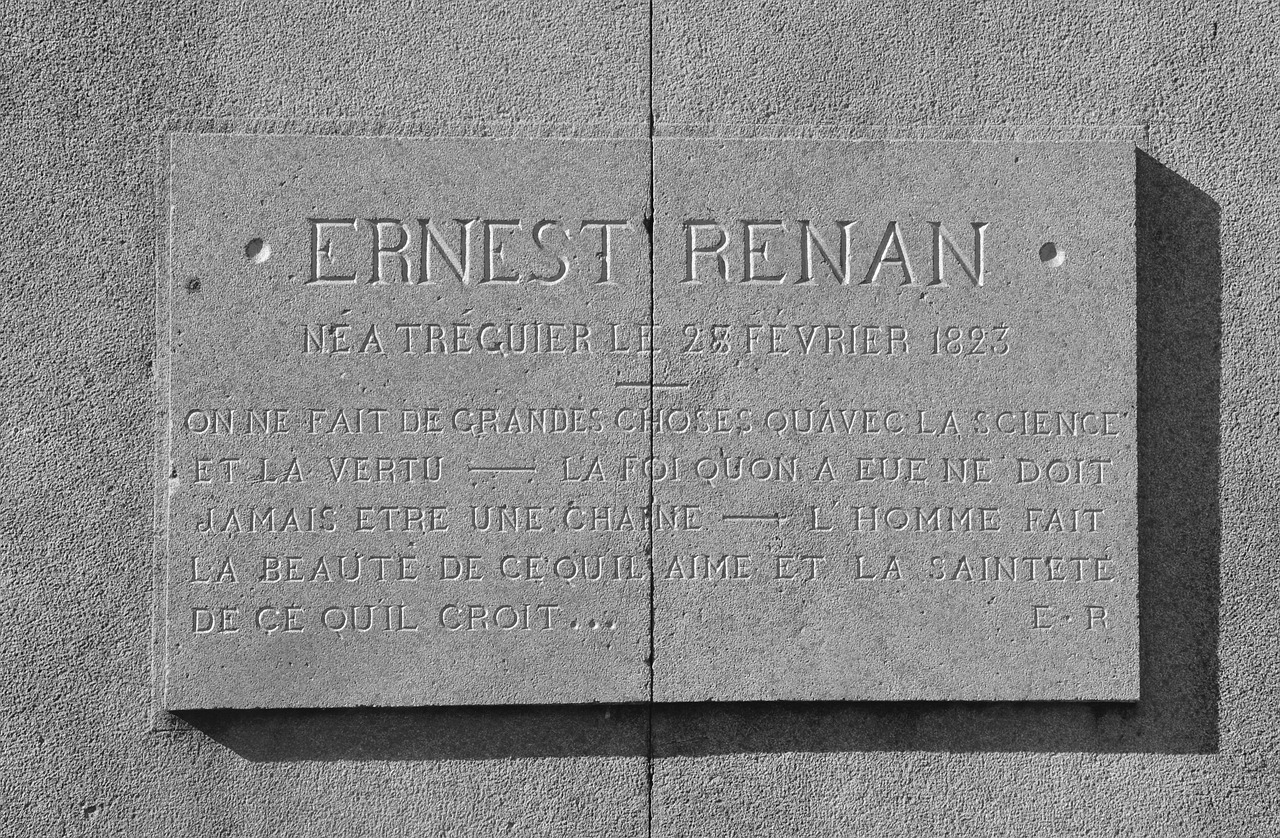
Modern Interpretations of Josephus
Modern interpretations of Josephus continue to evolve as new archaeological discoveries and research shed light on ancient history. Scholars today grapple with the authenticity and reliability of Josephus's writings, considering the context in which he lived and the potential biases that may have influenced his accounts. The ongoing debates surrounding Josephus's work prompt a reevaluation of his contributions to our understanding of Judean history and the Jewish diaspora.
Frequently Asked Questions
- What are the major works authored by Josephus?
Josephus is known for his significant works such as "The Jewish War" and "Antiquities of the Jews." These writings provide valuable insights into the history and culture of the Jewish people during the Roman period.
- How did Josephus bridge the gap between Jewish and Greco-Roman cultures?
Josephus played a crucial role in explaining Jewish customs and beliefs to a wider audience, thus fostering a better understanding between Jewish and Greco-Roman cultures. His writings served as a bridge for cultural exchange and mutual comprehension.
- What controversies have surrounded Josephus's works?
Over the centuries, Josephus has faced criticisms and accusations of bias and manipulation of historical facts in his writings. Scholars have debated the authenticity and reliability of his accounts, leading to ongoing discussions about the accuracy of his historical narratives.

